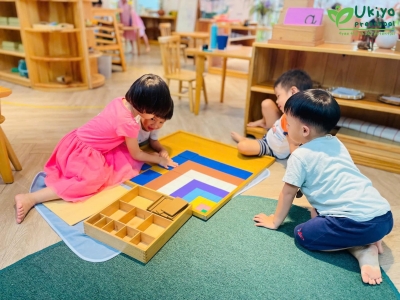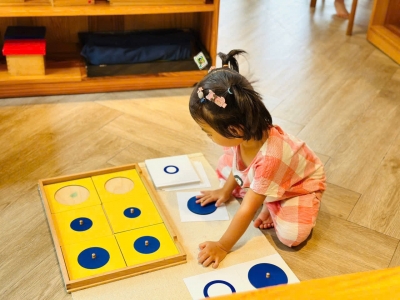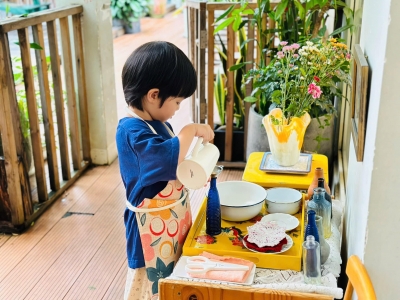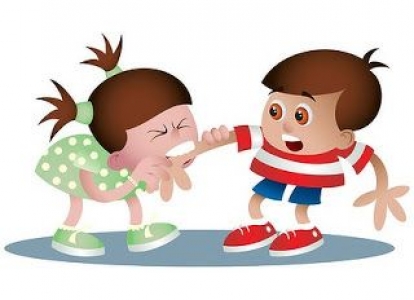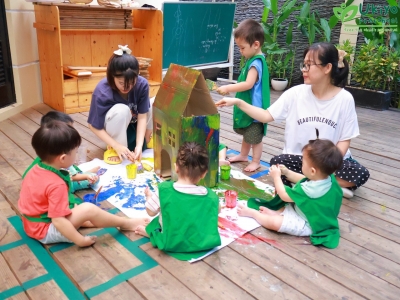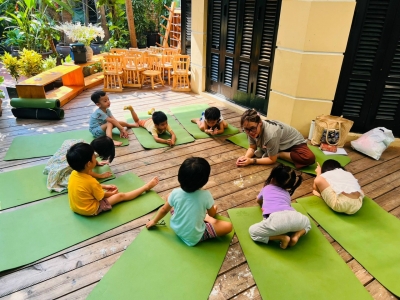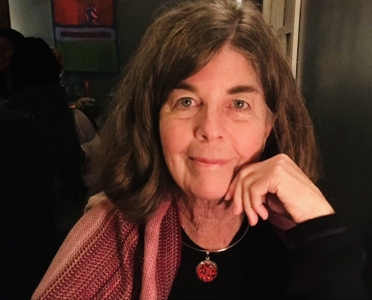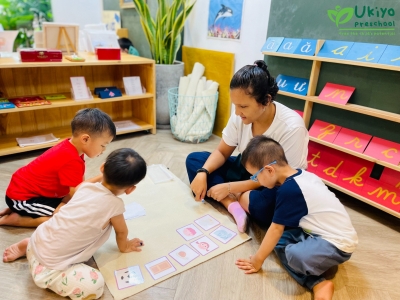MONTESSORI MUSIC PROGRAM AT UKIYO PRESCHOOL
What Did Maria Montessori Say about Music?
Music is an integral part of the Montessori classroom. It enables children to communicate and express themselves non-verbally; helps them enjoy music and feel happy; enhances their math skills, literacy, and overall brain development; and can even improve their academic performance.
According to Dr. Maria Montessori, children naturally like to move, dance, and wiggle, and music is absolutely perfect for that. Because music is a real aspect of everyday life, it is an excellent way to introduce children to various learning subjects. Music helps children learn language and speech skills, develop movement and coordination, explore other cultures, and so much more.
Additionally, it has been found that children involved in Montessori Music programs have a stronger auditory sense and better concentration than children who are not. That is likely because Montessori programs emphasize the use of the five senses.
1. Enhances children’s brain development
Montessori education emphasizes the importance of recognizing children’s sensitive periods and customizing instruction to coincide with these. It’s been found that for the first three years of a child’s life, music can be used to stimulate nerve connections between brain cells that play an important role in cognitive development. This has a significant benefit for learning later on. These pathways unlock the child’s ability to develop reading, writing, and math skills.
2. Gives children non-verbal effective communication skills
Children are full of emotions yet unlike (most) adults, they may lack the skills to accurately and adequately express these emotions. Music gives them a tool to do this and can help children express emotions more productively than simply crying, yelling, and so forth.
3. Helps children enjoy music and feel good
Music brings joy to adults and children alike. In fact, this feeling of joy may be related to dopamine: listening to music you love releases dopamine in your brain, and dopamine makes you feel good. It’s been found that babies as young as five months old react to happy music, and happy music causes people to breathe faster, which is a physical sign of happiness. Exposure to, learning about, and playing music gives children an early appreciation of music and one that may very well stay with them their whole lives.
4. Improves children’s literacy
Taking music lessons can increase children’s listening skills, and because humans process sound the same way we process speech, music education can in turn improve the way children process language. Enhanced ability to process language can lead to improved literacy.
5. Helps engage children in learning
It’s been found that the arts, and music in particular, have a positive impact on students’ math, reading, writing, and self-esteem. The arts require thinking beyond simple formulas and patterns; they are about relationships, and the ability to navigate different kinds of relationships is vital in both the workforce and life. The arts also involve problem-solving and creativity, which are of course important in academic life and life in general.
What Does Montessori music Programs at Ukiyo Look Like?
Music plays a role in nearly every part of Montessori education. The goals of Montessori music education of Ukiyo are to develop literacy, listening, singing, playing, movement, and ear training skills. When learning music through the Montessori method at Ukiyo, children are encouraged to learn whichever suits the child best.
At Ukiyo music in the Montessori learning model encourages children to develop self-expression, basic hearing skills, hand-eye coordination.
The Montessori approach encourages the natural development of children with an education that supports the unique needs of each individual child at each developmental stage. At Ukiyo the implementation of Montessori education revolves around five basic principles: respect for the child, the absorbent mind, sensitive periods, the prepared environment, and auto education.
At Ukiyo's music room, the environment is always ready for children to explore the sounds of musical instruments such as maracas, drums, tambourines, mules, shakers... Besides, children will enjoy music and play music. through various activities in Ukiyo's Montessori music program.
On weekends, children will directly enjoy piano concerts. Children express their feelings through sweet melodies, funny dances, lovely lyrics next to teachers.
Others



